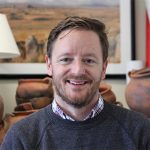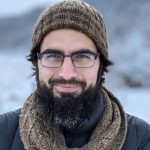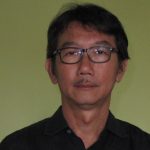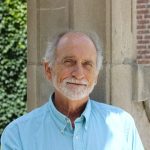Graduate Supervisors

Meet Our Supervisors
The Department of Anthropology is home to many faculty members available to supervise graduate students in a variety of specializations.
Students play a central role in shaping the intellectual life and direction of the department. If you would like to join our open, multi-vocal conversation and community of research, please get in touch with any of our faculty.
To connect with prospective supervisors, please contact the Graduate Administrative Assistant, John Silva.
Archaeology
We incorporate an array of topical interests, methods, and theoretical orientations in our work and encourage graduate students to engage in guided individual research projects. Research design is an integral part of every student’s program.
Faculty research interests cover a range of societies, including hunter-fisher-gatherers, Neolithic village societies, and pre-industrial states. The primary areas of faculty research expertise are in the areas of Mesoamerica, Andean South America, the Pacific Northwest Coast and the Eastern Mediterranean, but we supervise graduate student research that complements our topical interests in a wide range of geographic locations.
Dive deeper into our Archaeology program on the Archaeology Research Program page.

Tristan Carter
PhD
Professor, Anthropology
Undergraduate Chair, Anthropology

Andy Roddick
PhD
Associate Professor, Anthropology
Chair, Anthropology
Biological Anthropology
Our program offers students the opportunity to study human biology, past and present, using a variety of data, methods, and theoretical orientations in genetics, epidemiology, nutrition, bioarchaeology, and paleopathology. We are addressing questions about human origins and migration, population structure, health and disease, and human-environment interactions in past and present populations.
We have state-of-the-art laboratory facilities in hard tissue thin sectioning, microscopic image analysis, molecular genetics and enjoy collaborations with researchers in Italy, France, England, the Netherlands, Spain, US, Canada, and locally in the City of Hamilton.
Visit our Biological Anthropology Research Program page to learn more about our research projects, facilities and the Shelley Saunders/Koloshuk Family scholarship.

Tina Moffat
PhD
Professor, Anthropology
Adjunct & Associate Member, Health, Aging & Society

Hendrik Poinar
PhD
Professor, Anthropology
Associate Member, Biology, Faculty of Science
Joint Appointment, Biochemistry & Biomedical Sciences, Faculty of Health Sciences
Member, Michael G. DeGroote Institute for Infectious Disease Research (IIDR), Faculty of Health Sciences
Member, Origins Institute, Faculty of Science
Associate Member, Biology, Faculty of Science

Tracy Prowse
PhD
Associate Professor, Anthropology
Associate Editor, American Journal of Biological Anthropology
Sociocultural Anthropology
We are committed to an engaged and relevant anthropology that focuses on issues of public concern, and we maintain a strong critical and theoretical focus on three thematic clusters:
- Democracy, Violence & Humanitarian Intervention
- Media, Visuality & Art
- A broad range of topics within Medical Anthropology, including: Welfare, Care, Well-being, Religion/Spirituality and Indigenous Knowledge.
We often build intensive, rich and enduring relationships with the people and peoples with whom we work. This gives us access to ‘human scale’ and Indigenous forms of knowledge and insights that are relatively uncommon within academia.
Learn more about our connections to diverse communities that will help further your research on the Sociocultural Anthropology Program page.

Cal Biruk
PhD
Associate Professor, Anthropology
Graduate Chair, Anthropology

Basit Iqbal
PhD
Assistant Professor, Anthropology
Adjunct & Associate Member, Religious Studies
Adjunct & Associate Member, Institute on Globalization & the Human Condition

Karen McGarry
PhD
Associate Dean, Faculty of Social Sciences
Associate Professor, Anthropology

Kee Yong
PhD
Associate Professor, Anthropology
Associate Member, Institute on Globalization & the Human Condition

Adrianne Xavier
PhD
Assistant Professor, Indigenous Studies
Assistant Professor, Anthropology
Member, McMaster Indigenous Research Institute (MIRI)
Anthropology of Health
Our faculty train students in a range of theories and methodologies that can be brought to bear in the analysis of health and disease-related phenomena. We share a common concern for an engaged and critical anthropology that informs our understanding of how social determinants of health intersect and influence the well-being of individuals and communities, and how our investigations may benefit those with whom we conduct research.
Faculty and students have carried out fieldwork in many parts of the world in urban and rural environments, and in clinical, laboratory and community settings. Our interests are wide ranging: from the study of ancient DNA and molecular processes, skeletal evidence for health and disease in the past, through explorations of illness experiences, social relationships and healthcare settings, and the analysis of historical and contemporary epidemics, health care policies and the structural inequalities that impact well-being.
Learn more about our perspectives and interdisciplinary connections on the Anthropology of Health Research Program page.

Cal Biruk
PhD
Associate Professor, Anthropology
Graduate Chair, Anthropology

Tina Moffat
PhD
Professor, Anthropology
Adjunct & Associate Member, Health, Aging & Society

Hendrik Poinar
PhD
Professor, Anthropology
Associate Member, Biology, Faculty of Science
Joint Appointment, Biochemistry & Biomedical Sciences, Faculty of Health Sciences
Member, Michael G. DeGroote Institute for Infectious Disease Research (IIDR), Faculty of Health Sciences
Member, Origins Institute, Faculty of Science
Associate Member, Biology, Faculty of Science

Tracy Prowse
PhD
Associate Professor, Anthropology
Associate Editor, American Journal of Biological Anthropology
Information Box Group

Research in Anthropology Explore Our Research
Explore our Research Programs and learn more about our six key areas of expertise and investigation:
- Art and New Materialisms
- Ecologies, Resilience and Change
- Embodiment, Health and Wellbeing
- Foodways, Diet and Nutrition
- Heritage, History and Memory
- Migrations, Displacements and Violence






